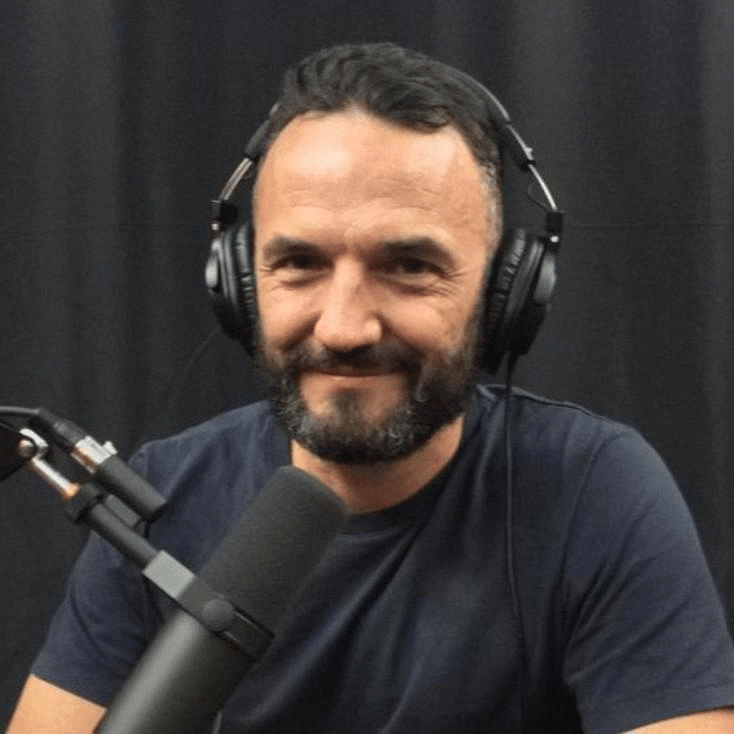
Pikkal & Co’s Graham Brown on the power of podcasting, storytelling, and knowing your audience
By Jim James, Founder EASTWEST PR and Host of The UnNoticed Entrepreneur.
Graham Brown is the author of “The Human Communication Playbook.” He’s an entrepreneur in his own right, running the Singapore-based podcast agency Pikkal & Co.
In the newest episode of The UnNoticed Entrepreneur, he discussed how entrepreneurs and business leaders could overcome some of the challenges they will face when packaging themselves — and get noticed.
Image from LinkedIn
Why Venture into Podcasting
One great way to get noticed is to host a podcast, invite many interesting people, and get them to share it with their network. Another option is to guest on other’s people podcasts.
As entrepreneurs, it’s not just about the budgets and the times. It’s more about the authentic message that you want to put out there. Don’t just do things like podcasting because you’re going to get sponsors, for example; think about all the connections you can create.
When it comes to podcasts, some systems and processes go on in the background that people don’t see. Graham talks about “automating to elevate.” It’s basically doing the heavy lifting in the background such that when you turn up for the podcast, you can simply focus on the human connection. You aren’t worried whether the guest will turn up or get the link or not or if you have the talking points.
To make podcasting successful, it’s really about having good workflows and systems. When you have these in place, you can focus on what appears to be the art — the storytelling and the human connection.
Image from Pexels
You can choose to do this yourself. But the key to podcasting is consistency. This is why people — especially corporates — come to an agency like Pikkal & Co. They understand that it takes time to do these things. Why do these themselves when somebody else can do it better and keep them true to their goal in podcasting?
Apart from workflows and systems, the other component of successful podcasting is overcoming fear and lack of self-confidence. It’s a bigger subject, and it all comes down to practice.
Connecting the Unknown to the Known Experience
Many factors lead to entrepreneurs failing to get in front of audiences. Ultimately, it boils down to them believing that people buy stuff. People don’t buy stuff — they buy what the stuff does for them.
The reason why businesses need to communicate — and people need communications or marketing as an industry itself — is that the audience doesn’t understand what that stuff does for them.
If you’re a startup founder and you’re pitching to an investor, you’re not pitching anything apart from the idea or story that if they put their money into your business, you will be taking them on a journey. You have to convince them that venturing into that unknown is a good thing to do.
The interesting part of human psychology is that the thing we fear most is the unknown. Humans invented storytelling thousands of years ago because it’s these stories that can connect the unknown to the known.
Image from Pexels
When Steve Jobs stood on stage and sold the iPod as a tool for the heart, he gave us an unknown device and connected it to a known experience (i.e., listening to music, feeling love, and connecting to songs).
This is what good entrepreneurs and storytellers do: They can connect the unknown future to the known experience. Because everything — whether it’s raising money, selling a product, or even joining a company — is about uncertainties. You don’t know how it will go. All of this requires somebody to understand where that fits into their experience.
Here’s a little bit more about human psychology: The human brain can’t distinguish the past, present, and future. It doesn’t have the concept inside. All it knows is experience. That’s why if you show your brain something familiar, it will feel like it has experienced it before.
So why do entrepreneurs have that fear of doing storytelling? They don’t see storytelling as something they should be doing. They feel they should rely on facts and data to sell themselves.
The Power of Storytelling
There's this sort of fundamental dilemma for entrepreneurs that, on the one hand, they start a business because they believe in something — they’ve got a story and a narrative. When it comes to convincing other people, they think they need to appeal to the rational, logical side of the audience.
But how can this be overcome? Is there a guideline for the stories that entrepreneurs should be associating themselves with so they can have a handrail to move along?
Again, it comes to taking something unknown and putting it into the context of something that people are very familiar with. The very analogy of using the handrail is a powerful example of this. This analogy takes an unknown, which is the guideline that Graham was going to discuss, and connects it with a concept that people know, which is the handrail.
Image from Freepik
For him, these simplest stories are the most powerful.
It’s the same concept behind the iPod and the traffic lights. The idea for the traffic light was taken from trains and the system used to operate them. The creators of traffic lights knew that people needed something easy to understand so they could travel on roads without creating chaos.
Understand that short-form storytelling exists — that is, taking something very simple and using it to package an idea. For example, if you say you’re the Uber of bicycles or the lastminute.com of hotels, you’re using analogy to help people understand what you are.
To get good at using analogies to create powerful stories, you have to practise them. Practise recognising them because they are present everywhere and in everything you do, albeit very subtle.
Going back to the handrail, think about how you can use such a simple concept to present yourself, your company, and what you do on stage.
When people ask Graham what he does, he doesn’t say he owns a podcast agency. Instead, he says that he’s a storyteller. He uses that as a label or package of what he does and, in the process, helps people understand where they fit in. Can he help me tell stories?
Getting on Stage, Facing Rejection, and Improving
After knowing labelling, packaging, and using analogies, the last part is getting on stage and facing rejection. Take a look at stand-up comics. They stand up, go up, and get rejected — and they do that regularly. This is how they become really good at what they do.
Graham calls this “agile storytelling.” It’s when you have many different scenes in your head instead of a finished book. I was born here. I went to Singapore. Then to China. Then I came back. These are all interesting stories, but they’re still a mess. When you get on stage and commit those into an audience (even if that audience is only five), they’d be able to “read” those stories and give you positive and negative feedback.
You need to take those in and use them to improve and build your story. Keep iterating and improving your material — just like what those stand-up comedians are doing — until you get to the point that you’d be someone like Jerry Seinfeld, who walks out on stage and deliver his material beautifully. It may seem effortless, but behind all that is 10,000 hours of rejection.
Image from Freepik
To be good at storytelling, face the moment of truth and take every opportunity to get on stage. The beauty of this is that today, that stage can be in the form of a podcast. You don’t have to travel or dress up for it. You can do this in any time zone — and this gives people several opportunities to get out there.
The Economics of Attention
Today, attention is the biggest cost in everything. There’s a war for attention out there. When you look at reality, the average person unlocks their phone 110 times a day. You are competing with that, alongside a number of other things.
There aren’t really captive audiences anymore. If you’re in business, for example, people now don’t read newsletters like they used to do.
We’re now living in a very attention-stretched world. Even if you trace the origin of the word “attention,” it comes from the Latin “tendere,” which is the same word as tendon. Literally, it’s been stretched for thousands of years.
The reality today is that your audience isn’t paying attention to you.
If you also think about it, in English, there’s the sentence “Pay attention.” We don’t say, “Give attention.” The audience has to pay to listen to you. There’s a distinct cost. And to get people to pay to listen to you, you have to give them something. You have to provide them with value. This is why you can’t demand attention like you used to.
The economics have significantly changed in the past 20 to 30 years. It’s now a very different world in terms of that competition for attention. However, the good thing is, if you’re that person doing that thing, then the piece of real estate you occupy in somebody’s mind is extremely valuable.
For instance, if you’re that person doing that podcast about data science they’ve been seeing on their social media feed, when it’s time they’d need an expert in data science, they’ll be able to recall you. This is how attention and the referral process work.
Image from Freepik
It’s important to define an avatar, know that thing you’re going to do, and double down on it. Think about what people seek you out for because people will keep coming back to the thing they keep seeing you as.
Remember that the person who’s number one in doing that thing — and doubles down on that — will make a lot of money. This is the economics of attention today.
His Podcasting Journey
Graham set up a podcast, not for the reason that it became. Often you start a podcast because it seems interesting; then you realise that people are noticing what you’re doing. Maybe this little old podcast with 20 episodes might go somewhere.
Expanding into 500 episodes, he became the guy his audience seeks. He got in front of good clients. He had some amazing experience sitting in front of people that he would’ve never gotten in front of because of the podcast.
One time, rather than pitching a billionaire guest the idea of investing in his business or buying his services, he pitched him the idea of doing a podcast. That guest did a podcast; then he became Graham’s client.
Image from Pexels
Besides podcasting, what other tool will you have to have 500 meetings with people?
Imagine if you could have 500 meetings with people in your industry right now, what kind of value would that be for you? It’s huge because you’re creating something together. You’re not just someone who had a coffee with those people. You’re making something together, and it will be on the internet for years and years.
It’s about investing in creating a long-term asset and practising good search engine optimisation (SEO) so that people can find you. It takes time. It’s a long-term play. But if you enjoy doing it, you won’t feel like you’re doing work.
Defining Your Audience Avatar
You don’t always need to have a podcast to enjoy podcasting. One option is to guest on other podcasts.
Whether you’re a host or a podcast guest, it really comes back to sitting down and defining your avatar. Be better and better at answering the question: Who is your listener? Because it doesn't matter what you've got to say. It matters who they are and what their problem is.
The first step of the system is to define your audience avatar. What’s their name?
Graham recounted a time when he interned for a radio guy. On his microphone, there’s a cutout photo of his listener. Every time he goes on air, that listener is who he’s speaking to. He knows their pain points and frustrations and why they listen to him.
Image from Unsplash
Knowing who your audience is, is your starting point. If you can define that person — and you get better at understanding who they are and what importantly their problems are — then you will be able to build your brand.
People don't care unless they know you care, and it all starts there. Unless you get that right, what follows in the system will have no impact on growing an audience.
To find out more about him, visit www.grahamdbrown.com. His website contains information on podcasting and guesting as well as his work and podcasts. You can also reach out to him via LinkedIn.
This article is based on a transcript from my podcast The UnNoticed Entrepreneur, you can listen here.
Cover image by Bruno Emmanuelle on Unsplash









